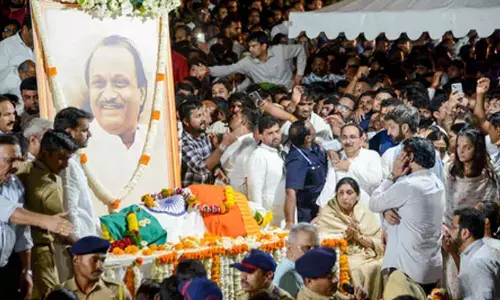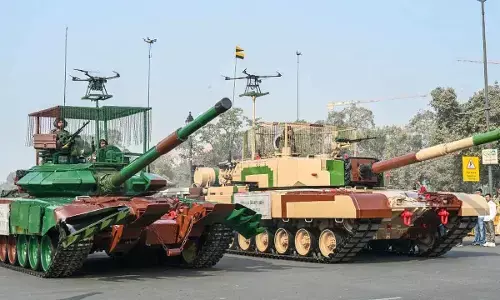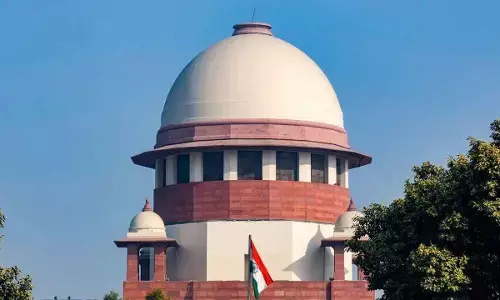Delhi's battle with air pollution continues as winter chill sets in

Onset of chilly winters and dismal air quality is proving to be a deadly combination for Delhi residents On Sunday, the minimum and maximum temperatures in the region were hovering at 24degree Celsius and 10degree Celsius, respectively
Onset of chilly winters and dismal air quality is proving to be a deadly combination for Delhi residents. On Sunday, the minimum and maximum temperatures in the region were hovering at 24-degree Celsius and 10-degree Celsius, respectively.
As per Centre-run System of Air Quality and Weather Forecasting And Research (SAFAR), the overall air quality index (AQI) of Delhi docked at 348 in the morning.
An AQI between 0-50 is considered good, 51-100 is satisfactory, 101-200 moderate, 201-300 poor, 301-400 very poor and 401-500 is marked as severe/hazardous.
At Dhirpur, the AQI was 282 at 8:30 am, while in Mathura Road area it dipped to 'hazardous' category at 451. Furthermore, AQI near Pitampura, Airport, Terminal 3 and Delhi University stood at 263, 324 and 243 respectively.
"The overall air quality in Delhi is 'very poor' and will remain in the same category for the next three days. Moderate surface wind speed is not allowing pollution to accumulate significantly. Rest weather conditions are unfavourable for the air quality. Moderate foggy conditions are prevailing over Delhi and surrounding regions but likely to improve a bit by tomorrow," SAFAR added.
Speaking to ANI, Ritu Sharma, a resident of Delhi's Pitampura area said that the foggy morning and air pollution is making it difficult for her to carry out routine outdoor activities and is also aggravating her asthma. "From the past 10 years, I regularly go for a morning walk as I have bronchitis asthma. Doctor has suggested light exercises outdoor but due to air pollution I suffer from breathlessness and fatigue," she stated.
In order to combat the menace of air pollution, the Supreme Court-appointed Environment Pollution (Prevention & Control) Authority for the National Capital Region (EPCA) has advised the Municipal Corporations of NCT of Delhi and NCR to increase the frequency of mechanised cleaning of roads and sprinkling of water on roads. The organsiation has further suggested intensification of public transport services and introduce differential rates to encourage off-peak travel.
Moreover, after taking cognisance of the deteriorating air quality, the EPCA will soon hold a meeting, specifically for industries set up in and around Delhi, to discuss the progress of shifting from coal to natural gas. The organisation had stated that "the ease of breathing" cannot be compromised for the "ease of business".
On Constitution Day last week, President Ram Nath Kovind also spoke on the increasing air pollution across the country and stated, "If a child suffers from asthma as a result of air pollution, I see it as a gap in justice."
According to the latest report published by the World Health Organisation (WHO), as many as one million lives in the world can be saved if all the countries reduce the menace of air pollution in accordance with the Paris Agreement by 2050. WHO presented this report at the United Nations Climate Change Conference (COP24) in Katowice on December 5 this year.
"The evidence is clear that climate change is already having a serious impact on human lives and health. It threatens the basic elements we all need for good health-clean air, safe drinking water, nutritious food supply, and safe shelter-and will undermine decades of progress in global health. We can't afford to delay action any further," the report read.
"When health is taken into account, climate change mitigation is an opportunity, not a cost," Maria Neira, WHO Director of Public Health, Environmental and Social Determinants of Health said.




